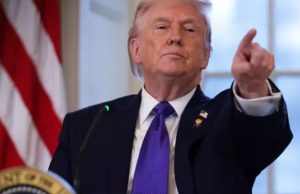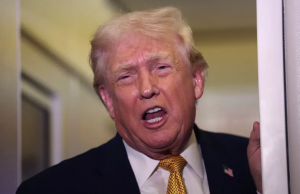On our wedding night, when I saw my wife’s body down there, I trembled—and in that instant, I finally understood why her family had given me a lakeside villa, valued at nearly two million dollars, just for marrying a poor man like me…
The moon was reflected on Lake Como like a trembling silver ribbon when I entered the bridal suite.
I still couldn’t believe that this place—a villa worth nearly two million dollars, a gift from my wife’s family—was now my home.
I, an engineer without a fortune, the son of a mechanic and a retired teacher, had married Clara Vannini, the only daughter of the most powerful real estate magnate in northern Italy.
Clara was sitting on the edge of the bed, wearing a silk dress that barely covered her pale skin.
She smiled at me, but her eyes… they didn’t have the light of a woman in love.
They were tired, resigned eyes, as if she were preparing for something inevitable.
“You’re trembling,” I said, trying to break the silence.
“So are you,” she whispered.
I moved closer slowly.
I had dreamed of this moment for months, ever since I met her at an architecture exhibition in Milan.
She had been the first to speak to me, the first to show interest in my clumsy sketches, the first to make me feel seen.
I never fully understood why she was drawn to me, but her family accepted it with suspicious speed.
Not a single obstacle, not a single question. Just a prenuptial agreement, signed with a smile.
When I slipped the dress off her shoulders, she closed her eyes.
Her body was beautiful, yes, but it was when my hands moved lower that I noticed something that chilled me to the bone.
A long, jagged scar ran across her abdomen to her belly.
I stepped back without thinking. Clara opened her eyes, and fear filled them.
“Clara… what is this?”

She hesitated before answering. She pulled the sheet over her head, breathing heavily.
“You promised not to ask questions,” she said softly.
“I don’t understand anything!” I cried, my heart racing. “Why did your family…? Why did they give me all this?”
She looked at me as if she knew that this moment would change everything.
“Because they needed someone to agree to marry me,” she whispered. “And they knew you wouldn’t say no.”
The silence became unbearable. Outside, the lake’s waters gently lapped against the dock.
At that moment, I understood: that fortune, that villa, weren’t a prize.
They were the price of a secret. And I had just become its unwitting guardian…
I didn’t sleep that night. Clara lay motionless beside me, breathing slowly, while my mind spun between disbelief and fear.
At dawn, I went down to the garden and lit a cigarette. From there I could see the butler preparing breakfast as if nothing had happened.
Everything in that house seemed designed to hide something.
When Clara appeared, she was wearing a long coat and her face was pale.
She asked me to accompany her to the dock.
We walked in silence until the sound of the water enveloped us.
“It wasn’t an accident,” she said suddenly. “That scar isn’t from a common operation. They did that to me… so I couldn’t have children.”
I froze.
“What are you saying?”
“My father decided that no man who married me for money should inherit his company. So he made me… a kind of guarantee. He thought that if I couldn’t have children, no one would come after me for money. But when he found out I fell in love with you, he changed his strategy. He gave you all this to make sure you wouldn’t abandon me.”
Her words hit me like a cold wave. I tried to speak, but I couldn’t. She continued:
“I didn’t marry you to obey him, Marco.” I married you because I thought you could love me unconditionally. But now… I’m not so sure.
The wind lifted her dark hair. I went to her and hugged her, but her body remained rigid.
For the next few weeks, I tried to act normal.
I accepted the contracts her father offered me at his design firm, attended dinners, smiled for photographers.
But something inside me had broken.
Every time I saw Clara, I also saw the scar, the symbol of a bought love, of a silent betrayal.
One day, while reviewing some blueprints in her father’s office, I found a folder labeled with her name.
Inside were medical reports, diagnoses, and a letter signed by Vannini himself:
“Intervention approved. Reason: asset control.”
I felt nauseous.
That night I confronted my father-in-law. He was in his studio, drinking whiskey by the fire.
“You destroyed your daughter’s life,” I told him. The man looked at me without surprise.
“No, boy. I saved her. Do you think the world would have forgiven her for being my heir? I lifted a burden from her that you’d never understand.”
“Y took away her ability to decide for herself.”
“And what did you do?” he retorted with a bitter smile. “You accepted my money before you knew the truth. Now we both live off my sin.”
I left without answering. Clara didn’t come home that night.
The police found her car by the lake three days later.
Inside, her purse and a letter addressed to me:
“I don’t want you to look for me. You need to remember who I am without the weight of what they did to me… and to you.”
For months I traveled across half of Europe trying to find her.
I went to Milan, Rome, even Marseille, where a friend of hers said she’d seen her in a café across from the port.
Every lead ended in silence.
Meanwhile, the Vannini company was collapsing; her father fell ill, and the lawyers were pressuring me to sell the villa.
A year later, I received an envelope with no return address.
Inside, a photograph: Clara, smiling, holding a small child.
On the back, a phrase: “Some miracles aren’t explained by science, but by faith.”
I didn’t understand anything until I contacted the doctor who had signed the sterilization reports.
She confessed to me that the operation was never completed.
“Her father changed his mind at the last minute,” she said, “but the trauma was enough to convince her it was irreversible.”
Clara had fled, rebuilding her life far from her family’s control.
And, in that moment, I understood that my role wasn’t to find her, but to free her from the past that haunted her.
I sold the villa and donated the money to a foundation for women subjected to forced sterilization.
Then I moved to a small town in Spain, where I returned to architecture.
I built small, modest houses, but full of light, as if each window were an apology to the world.
Five years later, I received a call from Valencia.
A woman’s voice asked me to come to an exhibition.
When I arrived, my heart was trembling.
In the center of the room was a model: a house by a lake, identical to our villa, but rebuilt, with a new wing.
The signature: Clara Vannini Studio.
She was there, with the same boy from the photo.
We looked at each other, speechless.
“I didn’t come to apologize,” she said softly. “I came to thank you. For not turning me into a story of revenge.”
We hugged, and her son, curious, took my hand.
I felt then that the lake, the one that had once been the scene of a secret and fear, was once again a place of life.
Clara had been reborn, and so had I.
Sometimes, the truth doesn’t destroy: it cleanses.
And although the price was high, that love, born amidst scars and silences, finally found its purest form: freedom.
















